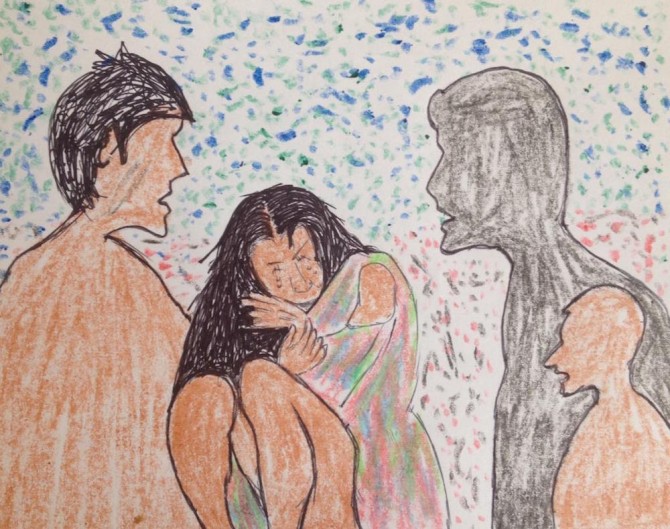By Kishor Panthi
“I never thought I had to lose my dignity to get into the U.S.” With tears rolling down her face, Ms. Sherpa, 32, asked us not to reveal her name. She shared her story with us saying, “On the journey to the USA I was raped a number of times. I started believing I was a corpse. I had almost forgotten I was alive.”
As she travelled from Honduras to Mexico to enter the U.S. illegally, she was repeatedly raped by smugglers, and by the time she got to New York she was 20 weeks pregnant. She did not even know who the father of the child was. She had carried the American dream with her on her journey to the U.S., and now she carried a child that was the product of a rape. Her story is so awful that anyone who hears it will have goosebumps.
“Suicide was better than carrying a rape baby in my womb,” she says, and with this thought she had already decided her fate. But then she met a New York-based Nepalese social worker who gave her hope to live. She suggested that she have the child aborted and get a fresh start.
The social worker took her to Elmhurst Hospital in Queens. But the hospital refused to perform an abortion, says the social worker, Gautam, 33: “Since the victim was 20 weeks pregnant and her health condition was weak, the hospital was scared to undertake the abortion. After the hospital denied her an abortion we became more worried. The victim was highly depressed and suicidal.”
After being turned away from different hospitals and clinics, they finally found a private clinic in Queens that agreed to do the procedure, but only after a payment of $1,400. The victim had just entered the U.S. after paying nearly $37,000 to the smuggler. She barely had $14 in her pockets let alone $1,400. But the social worker helped her with the money and she got an abortion. Now the victim is working in New Jersey as a babysitter. Her application for asylum is still pending.
“This seems like a frightening nightmare. Let’s not dwell in the past. Just thinking about it makes me suicidal,” said the victim, her eyes full of tears. She left her 10-year-old son and 8-year-old daughter with her husband back in Nepal; she has yet to confess to her husband. “How should I tell my husband this story? I think my husband will leave me if he knows about the incident. How will I face society?” she asks.
Amnesty International estimates that 60 percent of the women who cross the U.S. border illegally from Mexico are raped, while a Fusion investigation puts the number as high as 80 percent. Says Ms. Sherpa: ”It’s not only me, other women who came along with me were raped too. Some gave up their body instead of money and some were raped. They even drugged us to rape us.”
New York-based immigration attorney Bashu Phulara, 40, says, “Before entering the U.S., while on the move, there are incidents where smugglers don’t bother until they get paid, but when they are not paid they start abusing and give a lot of trouble. While in Mexico there are incidents where migrants are abandoned in jungles if they don’t turn over enough money, or they are put in a drug cartel in Mexico, or they are raped. But still Nepalese women dare to take the risk.”
There are some examples of women being saved and protected by the people accompanying them.
Mr. Adhikari, 28, a Nepalese who crossed the border illegally and is now in the U.S., says: “We had a Latina woman in our group who had sex with the smuggler regularly. It felt like the woman had given up her body in place of money to the agent. But we didn’t know about any Nepalese women in our group being raped.”
Mr. KC, 35, a man who entered the U.S. similarly, says: “We had only one woman in our group. Before she met us, she was abused by the smuggler. He tried to abuse her again when she was with us, and I protected her saying she was my wife. He stopped once I said she was my wife.”
Though many women who cross the border illegally through Mexico to reach the U.S. get raped along the way, they don’t want to tell their story. Mr. KC says, “How will these poor women tell anything? It’s just shaming them. Back home in Nepal it’s not the rapist but the rape victim who is looked down upon. They have no benefit in telling.”
Attorney Phulara says: ”Nepalese women don’t want to say they were raped. They have difficulty saying the truth. But when I read the human rights reports, there are many women who were raped. Whether or not Nepalese women are raped, they certainly face a lot of difficulties on their way to cross the U.S. border illegally. As they have to cross many countries and sometimes spend a week or two in one place, there can be situations where they run out of money and sadly get abused and raped by the agents.”




